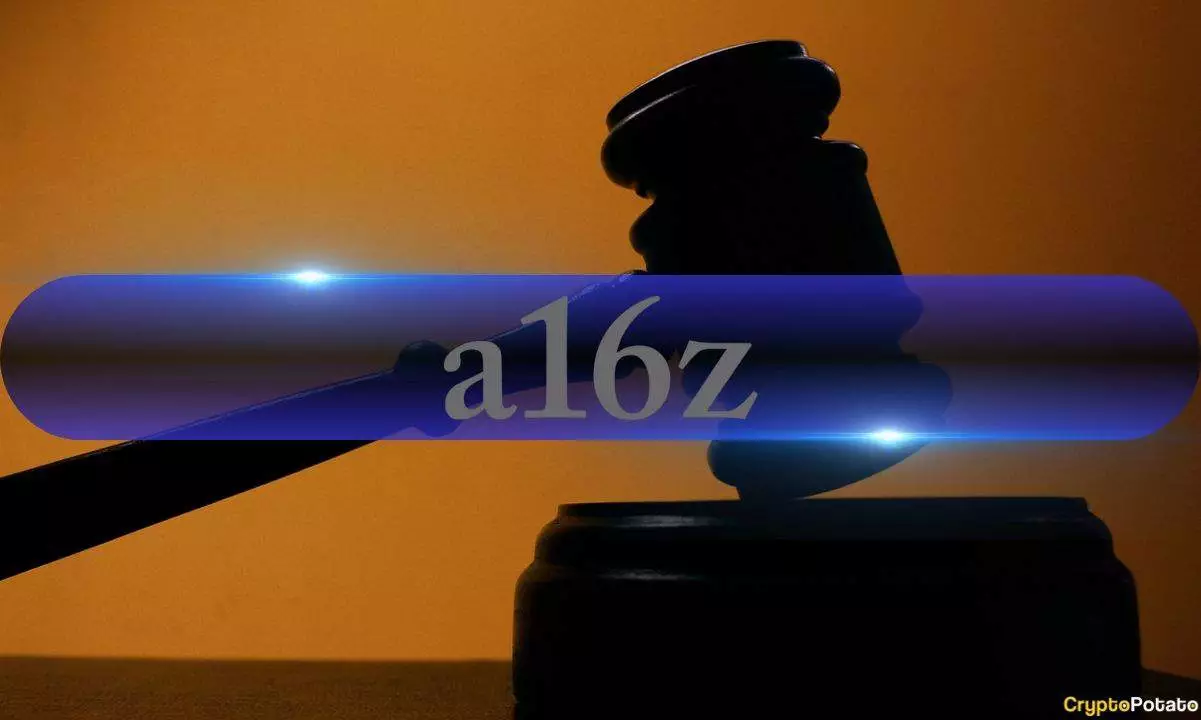The rapid evolution of decentralized finance (DeFi) has ushered in a new era of financial services that promise transparency, inclusivity, and accessibility. However, the recent imposition of a broker reporting rule by the U.S. Treasury and IRS, spearheaded by Michele Korver, head of regulation at Andreessen Horowitz’s blockchain division A16z Crypto, has sparked significant controversy within the crypto community. Viewed by many as an encumbrance, this rule threatens to stifle the robust innovation that DeFi represents, calling into question the future trajectory of this disruptive financial technology.
Korver’s vocal opposition to this ruling encapsulates the broader sentiment occurring within the DeFi sector seeking to navigate a regulatory landscape that seems increasingly hostile to its model. The essence of her critique lies in the distinction between traditional financial transactions and the unique operational framework of decentralized protocols. According to Korver, these platforms are not conventional brokers since they do not directly facilitate transactions, pointing to an inherent misalignment in the regulatory framework.
In response to the new regulations, A16z is aligning itself with various organizations, including the DeFi Education Fund and the Blockchain Association, in a concerted legal effort to challenge the rules established by the Infrastructure Investment and Jobs Act. This collaborative action aims not only to prevent the broadened definition of brokers from encompassing DeFi platforms but also to advocate for a regulatory framework that genuinely recognizes the distinct nature of decentralized financial systems.
Critics assert that the provisions of the new rule impose excessively burdensome compliance requirements on DeFi entities, stifling the growth of an industry that thrives on efficiency and decentralized operations. The plaintiffs argue that these requirements violate the Administrative Procedure Act (APA) and exceed the authority granted to the Treasury. The case illustrates the frustration and urgency felt by stakeholders who believe that the regulatory landscape ought to evolve in harmony with technological advancements rather than inhibit them.
Korver’s characterization of the rule as a “midnight” decision reveals a perception of haste and lack of deliberation that could have profound implications. By prioritizing rapid implementation, regulators may inadvertently cripple the very innovation they seek to regulate. The sentiments echoed by legal and policy experts raise alarms about the potential for DeFi to shift operationally out of the United States, detracting from the nation’s standing as a global leader in technological innovation.
The potential for innovation to be pushed offshore raises concerns not only for entrepreneurs operating within this sector but also for regulators who may find it increasingly difficult to supervise and maintain oversight over an industry operating from jurisdictions with lighter touch regulations. This scenario points to the need for a thoughtful re-evaluation of how regulatory frameworks engage with emergent technologies, especially in areas where traditional financial regulatory paradigms falter.
The urgency of the situation is amplified by the chorus of voices within the crypto space. Notable figures, such as Jake Chervinsky from the Blockchain Association, highlight the rapid organization of the crypto industry in response to regulatory overreach. His insights into the evolving political landscape showcase a growing resilience and readiness to challenge regulatory frameworks that fail to accommodate the unique aspects of crypto technologies.
Furthermore, industry leaders from platforms like Uniswap have voiced their discontent, emphasizing the absurdity of categorizing DeFi technologies as brokers. Their arguments signal a fundamental belief that misconstruing the operational reality of DeFi platforms not only undermines the innovation occurring within this space but could also lead to unwarranted surveillance measures that infringe on individual rights.
As discussions surrounding regulatory frameworks continue, there lies an imperative for stakeholders in the DeFi sector to actively participate in shaping policy that enables sustainable growth. The ongoing legal challenges represent not only a defensive maneuver but also an opportunity for dialogue around the future of finance. A collaborative approach that considers the perspectives of innovators, investors, and regulators appears essential in balancing consumer protection with the unwavering need for technological advancement.
Michele Korver’s reassurance that industry attorneys are vigorously defending DeFi technologies emphasizes a commitment to the future of this sector. The path forward rests on devising a regulatory approach that embraces the dynamic potential of decentralized finance while fostering an ecosystem where innovation can flourish in alignment with consumer rights and interests. The stakes are high, and the outcome will undoubtedly shape the future landscape of financial services for years to come.

